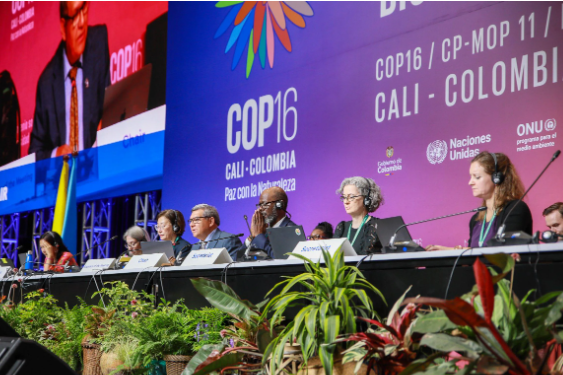COP16 Aims for Global Deal on Genetic Information Use
At the U.N. COP16 nature summit in October 2024, countries are set to negotiate a deal on the use and compensation for genetic information from nature. This data, known as “digital sequence information” (DSI), is crucial for research and commercial applications. The summit aims to establish a multilateral system that benefits countries rich in biodiversity, ensuring they receive fair compensation.
What is Digital Sequence Information (DSI)?
DSI refers to the genetic codes of living organisms. Advances in technology allow scientists to sequence genomes quickly. These sequences are digitized and stored in public databases, accessible to researchers worldwide. The focus at COP16 is on the use of this digital information, rather than the physical samples.
Importance of DSI
DSI plays a vital role in various industries, including pharmaceuticals, cosmetics, and agriculture. Companies use genetic information to develop new products, such as medicines and enriched food options. The sectors linked to DSI generate approximately $1.6 trillion annually, although not all revenue comes directly from genetic information.
Countries like Brazil and India are wary of corporations exploiting their genetic resources without compensation. They seek a fair system that rewards them for the use of their biodiversity. Current laws on genetic material use vary widely and often yield little financial benefit for these nations.
Negotiation Goals at COP16
The main objectives of the negotiations include determining who should pay for DSI, how much they should pay, and how the proceeds will be utilized. A straightforward approach could involve charging a percentage of revenue from specific sectors, like pharmaceuticals, for access to DSI databases.
A U.N.-commissioned study suggests that a charge of 0.1% to 1% on annual revenues from key sectors could generate between $1 billion and $10 billion each year. This revenue could support conservation initiatives and assist poorer nations in developing their genetic research capabilities.
Implementation Challenges
Once a deal is reached at COP16, individual countries will need to implement the rules. This process can be lengthy. A voluntary payment system could expedite the use of DSI, allowing companies to pay an agreed rate while using genetic information.
Any agreement must ensure that non-profit research retains free access to DSI. This access is essential for advancing scientific knowledge and promoting conservation efforts. The deal aims to balance commercial interests with the need for sustainable practices and biodiversity protection.
Future of DSI in Global Markets
The outcome of COP16 could reshape how genetic information is used globally. A fair and transparent system could enhance collaboration between countries and industries, encouraging innovation while protecting biodiversity. The summit represents a critical moment for the future of genetic resources and their sustainable use.
Month: Current Affairs - October, 2024
Category: Summits and Conferences








